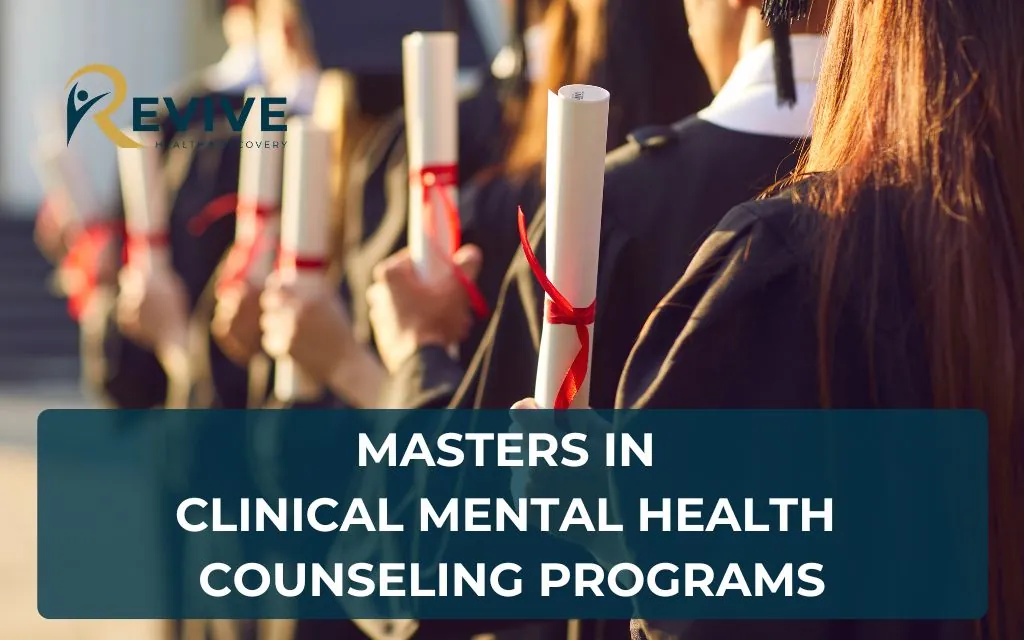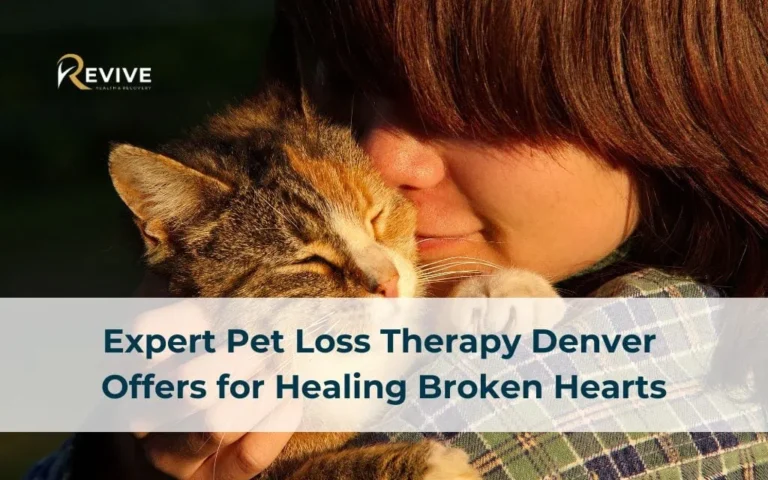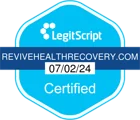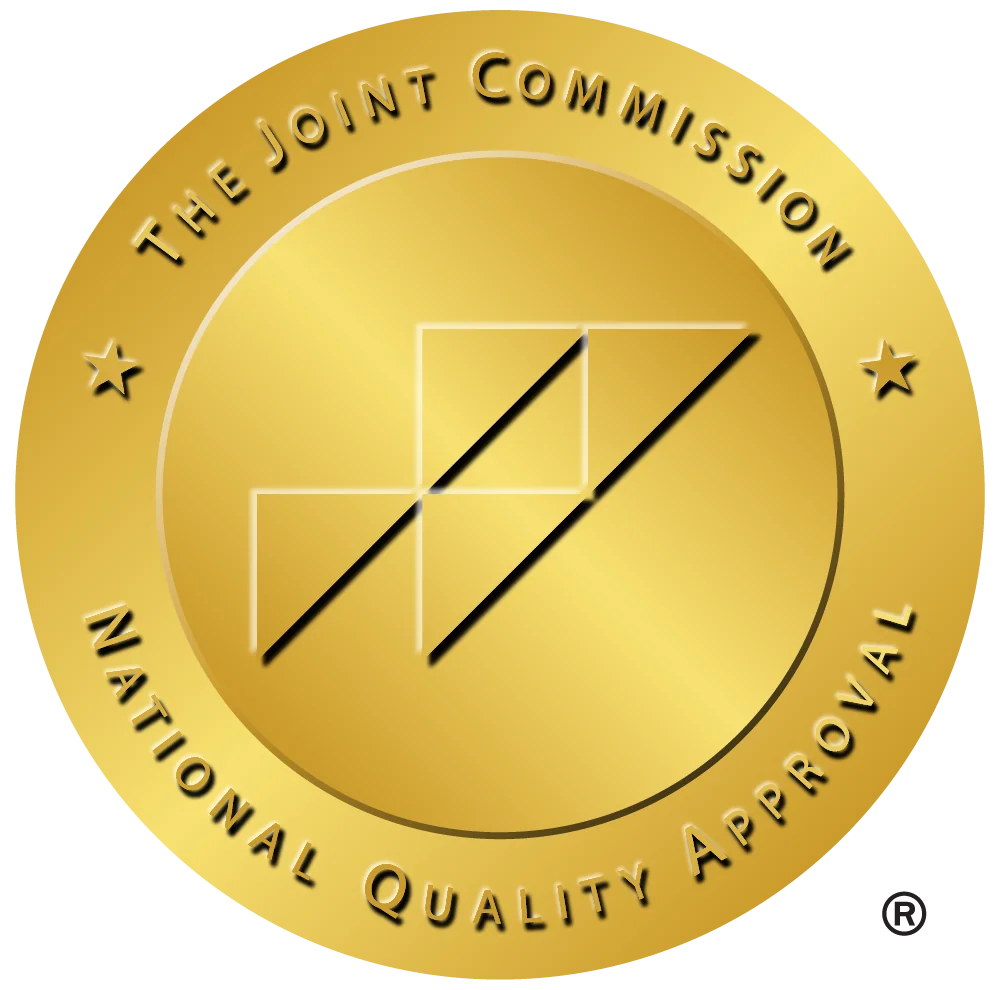For those passionate about fostering mental health and providing vital support to individuals in need, earning a masters in clinical mental health counseling can be the perfect next step. This degree opens doors to impactful roles where counselors play a crucial part in guiding clients through mental health challenges and toward healthier lives. With the growing demand for skilled mental health professionals, a degree in clinical mental health counseling has become highly valuable.
In Denver, Colorado, programs like those offered in collaboration with Revive Health Recovery equip students with hands-on experience, allowing them to enter the workforce with confidence and expertise. From core counseling techniques to fieldwork in diverse communities, students gain a holistic understanding of what it takes to be a successful counselor. Here’s a deep dive into what you can expect from a masters in clinical mental health counseling.
What is a Masters in Clinical Mental Health Counseling?
Understanding Clinical Mental Health Counseling
A masters in clinical mental health counseling is designed to train individuals to provide therapeutic support, diagnose mental health issues, and develop treatment plans tailored to each client. Mental health counselors work across various settings, including private practices, hospitals, community centers, and specialized health recovery centers such as Revive Health Recovery in Denver. The role involves not just understanding mental health disorders but also empathizing with individuals, building trust, and facilitating a supportive environment for recovery and personal growth.

Program Focus Areas
This degree program covers several core areas, ensuring graduates have a well-rounded skill set. Key focuses include therapeutic techniques, client-centered counseling, multicultural awareness, and ethical practices. Additionally, programs often highlight specific client populations, such as children, families, or individuals facing addiction issues. Through these focus areas, future mental health counselors become equipped to address a wide spectrum of mental health needs with compassion and efficacy.
How This Degree Differs from Other Counseling Degrees
While various counseling degrees offer foundational skills, a masters in clinical mental health counseling emphasizes clinical assessment, diagnostic skills, and evidence-based therapeutic practices. Unlike general counseling degrees, this program includes advanced training in areas such as trauma-informed care, addiction counseling, and crisis intervention, preparing graduates to handle complex clinical cases and to work in settings requiring licensure.
Curriculum and Coursework for Clinical Mental Health Counseling
Core Courses and Learning Outcomes
The curriculum for a masters in clinical mental health counseling is designed to provide students with a robust framework in counseling and mental health theories. Courses are rigorous, focusing on both the psychological and practical aspects of mental health care.
Counseling Theory and Practice
One foundational course involves counseling theory and practice, where students learn various counseling methodologies, such as cognitive-behavioral therapy, person-centered therapy, and psychodynamic approaches. Mastery of these approaches enables future counselors to choose and adapt techniques to meet individual client needs.

Diagnostic and Assessment Skills
Courses on diagnostic and assessment skills provide essential knowledge on identifying and classifying mental health disorders. Training often involves using the DSM-5 manual to assess symptoms and develop appropriate treatment plans, a crucial skill for counselors working in any setting, including facilities like Revive Health Recovery.
Practicum and Internship Requirements
Real-world experience is integral to any clinical mental health counseling program. Practicum and internships offer supervised, hands-on practice to prepare students for professional responsibilities after graduation.
Hands-On Experience and Supervised Practice
During practicum, students work directly with clients under the supervision of licensed professionals. They apply classroom knowledge to real-world scenarios, developing clinical competencies in a controlled environment. This hands-on experience is invaluable, providing insights that only direct client interaction can offer.
Choosing Between Online and On-Campus Programs
Benefits of Online Programs
Online programs offer flexibility and accessibility, making them appealing to students who may have other commitments or reside in areas with limited access to educational institutions.
Flexibility for Working Professionals
Many online programs are designed to accommodate working professionals, offering part-time schedules or asynchronous learning. This flexibility allows individuals to advance their careers without sacrificing current employment or personal obligations.
Accessibility for Rural Areas
For students living in rural or remote areas, online programs eliminate the need to relocate or commute long distances. This accessibility is crucial, ensuring that anyone with the desire and drive to earn a masters in clinical mental health counseling can pursue their goal.
Advantages of On-Campus Programs in Denver
In-person programs offer unique benefits, especially for those who prefer face-to-face interactions and a more structured environment.
Networking and In-Person Support
On-campus programs provide opportunities for direct networking with peers, faculty, and local professionals. Students gain insights from in-person discussions, develop stronger relationships, and access mentorship from experienced faculty and local practitioners.
Access to Denver’s Clinical Resources, Including Revive Health Recovery
Studying in Denver provides access to a rich network of clinical resources, including Revive Health Recovery. With its established reputation in mental health recovery, Revive offers valuable partnerships, providing students with practical exposure and potential career pathways in clinical settings.
Financial Aid and Scholarship Opportunities
Available Scholarships and Grants
A wide range of scholarships and grants are available to support students pursuing a masters in clinical mental health counseling. Many schools offer merit-based and need-based scholarships, and some private organizations also provide funding to those committed to serving underserved populations.
Tuition Reimbursement Programs in Denver
Some employers in Denver, including health facilities and clinics, may offer tuition reimbursement programs. These programs often support employees pursuing degrees in high-demand fields, like mental health counseling. In addition, facilities like Revive Health Recovery may have partnerships that enable students to gain experience while receiving financial support toward their degree.
Revive Health Recovery’s Role in Supporting Mental Health Professionals
Revive Health Recovery, located in Denver, Colorado, plays a significant role in supporting aspiring mental health professionals. By offering resources, field placements, and mentorship, Revive Health Recovery bridges the gap between academic learning and practical experience, empowering students and professionals to grow and thrive in clinical mental health counseling. With its comprehensive services, Revive is committed to cultivating skilled counselors prepared to address a wide range of mental health needs in today’s challenging landscape.

Beyond its dedication to patient care, Revive Health Recovery invests in the development of future mental health counselors through partnerships with educational institutions, providing invaluable support for those pursuing a masters in clinical mental health counseling. Here’s a closer look at how Revive Health Recovery enhances the professional journey for mental health students and practitioners alike.
Partnership Opportunities and Clinical Placements
Revive Health Recovery collaborates with academic institutions to offer clinical placements and internships, essential for students working toward a masters in clinical mental health counseling. These partnerships allow students to complete their practicum and internship requirements in a professional setting, under the guidance of licensed counselors who provide real-world insights and supervision.
Through clinical placements at Revive, students can apply their theoretical knowledge in a supportive environment. Working directly with clients, students gain hands-on experience in counseling techniques, patient assessments, and personalized treatment planning. This exposure to real-life cases prepares students to handle a diverse range of client issues, from anxiety and depression to trauma and dual diagnosis, building confidence and competence for their future careers.
Placements at Revive Health Recovery also offer students an inside look at the daily operations of a mental health recovery center. From case documentation to interdisciplinary collaboration with healthcare providers, students become acquainted with the multifaceted responsibilities of a mental health counselor. This experience is invaluable, especially for those seeking to work in clinical or recovery-focused settings after graduation.
Mentorship and Continuing Education Support
Revive Health Recovery is deeply committed to the ongoing growth of mental health professionals. Recognizing the importance of mentorship, Revive pairs students and early-career counselors with seasoned professionals who guide them through the intricacies of clinical practice. These mentors offer support beyond practical skills, encouraging self-care, professional ethics, and resilience—all critical traits for sustained success in mental health counseling.
Through mentorship programs, Revive ensures that mentees have access to experienced professionals who understand the challenges and rewards of counseling. Mentors provide advice on handling complex cases, establishing rapport with clients, and navigating the emotional aspects of clinical practice. This personalized guidance fosters a strong foundation, enabling mentees to progress confidently in their counseling careers.
Conclusion
Earning a Masters in Clinical Mental Health Counseling is a powerful step for those who want to make a meaningful difference in the mental health field. With a robust curriculum, opportunities for hands-on experience, and various program formats, students are well-prepared for a rewarding career in clinical mental health.
For those in Denver, Colorado, facilities like Revive Health Recovery offer invaluable resources and fieldwork opportunities that complement academic learning, preparing future counselors to meet the complex mental health needs of their communities. Pursuing this degree equips you with the skills, knowledge, and real-world experience to build a fulfilling career dedicated to promoting mental wellness.







